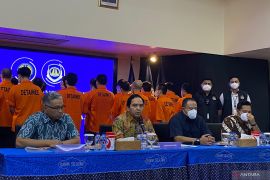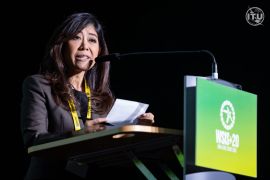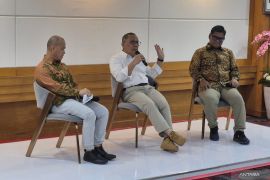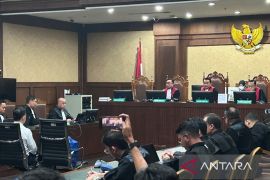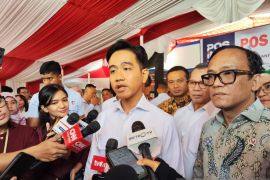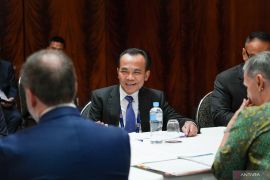His voice was so uncomplicated."Islamabad (ANTARA News) - The death of Junaid Jamshed, a Pakistani rock star-turned-evangelist, in a plane crash on Wednesday has stirred debate over his legacy, raising questions that cut to the heart of Pakistans widening cultural schisms.
Jamshed, 52, was one of Pakistans first rock stars before abandoning music to advocate a strict interpretation of Islam that would curtail womens freedoms.
Much of the reaction to the crash, that killed all 47 people on a flight from northern mountains to the capital, Islamabad, has focused on Jamsheds life, which seemed to embody a dichotomy similar to many Pakistanis struggle between embracing liberal and conservative values.
Jamshed rose to fame as the heartthrob vocalist of Vital Signs, a breakout band in the South Asian nation whose 1987 hit "Dil Dil Pakistan" became an unofficial anthem for the country.
Melding new wave, rock and pop, Vital Signs blazed a trail for musicians in Pakistan as it emerged from 11 years under military ruler Zia-ul-Haq.
Many say Pakistans lurch towards Islamic conservatism began under Zias programme of "Islamisation", which banned most music performances and encouraged strict conservative values.
Back then, Vital Signs soulful songs about love, heartbreak and disillusionment were deeply subversive. After Zias death in 1988, the groups popularity sky-rocketed.
"The nineties were a time of transition in Pakistan, from dictatorship to a democratic dispensation, and Junaids music represented the euphoria of that time," said Nadeem F. Paracha, a cultural critic.
In 2001, however, Jamshed abandoned music to join the strict Tableeghi Jamaat, which sends clerics across Pakistan and the world to preach Islam.
He grew a beard and admonished young people for straying from Islam, vowing never to sing any of his hits again.
In this new guise, Jamshed often commented that women should not be allowed to leave the house without a male relative.
"We grew up listening to your music and grew old listening to your sermons ... You will always be remembered," Maiza Hameed, a lawmaker, posted on Twitter.
"DISCO MULLAH"
Many chose to remember him nostalgically for his voice and rebellious songs that moulded the cultural identity of a generation.
They focused on Jamshed the music star, choosing to ignore his embrace of religious conservatism.
"Today, the last decade didnt happen," said Umair Javed, a London-based Pakistani academic.
But Ansar Abbasi, a widely read conservative columnist, asked media not to focus on Jamsheds music.
"Remember him as a preacher of Islam," Abbasi tweeted. Ahmer Naqvi, another cultural critic, said many Pakistanis were using the celebritys death as a lens for their own politics.
"This is a genuine national pop culture icon who straddle several kinds of divides," he said.
Among clerics, Jamshed had his detractors, who branded him a "disco mullah" and mocked his successful clothing brand.
In 2014, Jamshed was accused of blasphemy by a rival for comments about a wife of Islams Prophet Mohammad. He later apologised.
Others chose only to share his music, both Vital Signs many hits and religious naats, poems praising the prophet.
For many, Jamshed was just trying to figure out his own identity even as Pakistan itself was experiencing seismic cultural and religious shifts.
"His voice was so uncomplicated," said Naqvi, of both his singing, and his preaching. "And everything around him was extremely complicated."
Editor: Priyambodo RH
Copyright © ANTARA 2016

